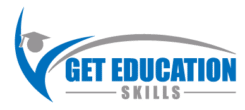Unlocking Educational Success: A Comprehensive Guide to Essential Aspects of Education
Wiki Article

Education is a multifaceted journey that significantly impacts personal and professional development. From developing core skills to preparing for exams and planning careers, understanding the various aspects of education is crucial for success. This guide explores essential elements of education, providing valuable insights for students, educators, and professionals.
1. The Role of Education
Education is the process of acquiring knowledge, skills, values, and attitudes. It begins in early childhood and extends through higher education and lifelong learning. Education is pivotal in shaping individuals’ intellectual and social capacities, preparing them for various life and career challenges. It fosters critical thinking, problem-solving, and adaptability, which are essential for personal growth and societal advancement.
2. Essential Skills for Educational Success
Developing key skills is fundamental to achieving educational and professional success:
Critical Thinking: Analyzing information, questioning assumptions, and making reasoned decisions.
Effective Communication: Articulating ideas clearly and persuasively, both in writing and speaking.
Problem-Solving: Identifying issues and generating practical solutions.
Time Management: Organizing tasks and managing time efficiently to meet deadlines and achieve goals.
Digital Literacy: Using technology effectively to support learning and work tasks.
These skills not only enhance academic performance but also prepare individuals for various professional and personal scenarios.
3. Exam Preparation Strategies
Exams are crucial for assessing knowledge and progress. Effective exam preparation involves:
Understanding Exam Types: Familiarize yourself with different exam formats, including standardized tests, quizzes, midterms, and finals.
Creating a Study Plan: Develop a structured schedule that allocates sufficient time for reviewing and practicing material.
Utilizing Study Resources: Use textbooks, online resources, and past exam papers to prepare thoroughly.
Managing Exam Stress: Employ relaxation techniques and maintain a balanced study routine to minimize anxiety and improve performance.
Proper preparation helps improve performance and enhances understanding of the subject matter.
4. Career Planning and Development
Career planning is essential for achieving long-term professional goals. Key aspects include:
Self-Assessment: Identify your interests, strengths, and values to determine potential career paths.
Exploring Careers: Research various professions, including their requirements, responsibilities, and growth prospects.
Building Skills: Obtain relevant qualifications and experience through internships, training, and projects.
Networking: Connect with professionals and mentors in your field to gain insights and opportunities.
A strategic approach to career planning ensures that your educational and professional efforts are aligned with your career aspirations.
5. Utilizing Online Career Resources
The digital landscape offers numerous tools for career advancement:
Job Portals: Websites like Indeed, Glassdoor, and LinkedIn list job openings and provide company reviews.
Professional Networks: Platforms such as LinkedIn facilitate connections with industry professionals and potential employers.
Online Learning Platforms: Sites like Coursera, edX, and Udemy offer courses and certifications to enhance skills and qualifications.
Leveraging these online resources can streamline job searches and career development.
6. Preparing for College
College is a significant step in higher education, requiring careful preparation:
Researching Colleges: Evaluate institutions based on academic programs, campus life, and location.
Application Process: Prepare application materials, including essays, recommendation letters, and transcripts.
Financial Planning: Understand tuition costs and explore financial aid options, scholarships, and grants.
Thorough preparation can enhance your college experience and future career opportunities.
7. Supporting Educators
Educators are crucial in facilitating effective learning. Key aspects of effective teaching include:
Lesson Planning: Develop engaging and educational lessons that meet curriculum goals.
Classroom Management: Create a supportive and productive learning environment.
Student Assessment: Evaluate and provide feedback on student performance to support their growth.
Supporting teachers with adequate resources and professional development helps ensure a high-quality educational experience for students.
8. The Importance of General Education
General education provides a broad base of knowledge and skills:
Literacy and Numeracy: Fundamental skills in reading, writing, and mathematics.
Social Studies: Understanding of historical, geographical, and civic contexts.
Science and Technology: Knowledge of scientific principles and technological advancements.
A strong foundation in general education prepares individuals for diverse life opportunities and ongoing learning.
Conclusion
Education is a complex and ongoing process that encompasses essential skills, effective exam strategies, career planning, and college preparation. By focusing on these key aspects and utilizing available resources, individuals can enhance their educational experiences and achieve their goals. For more information and resources, visit click here Get Education Skills.